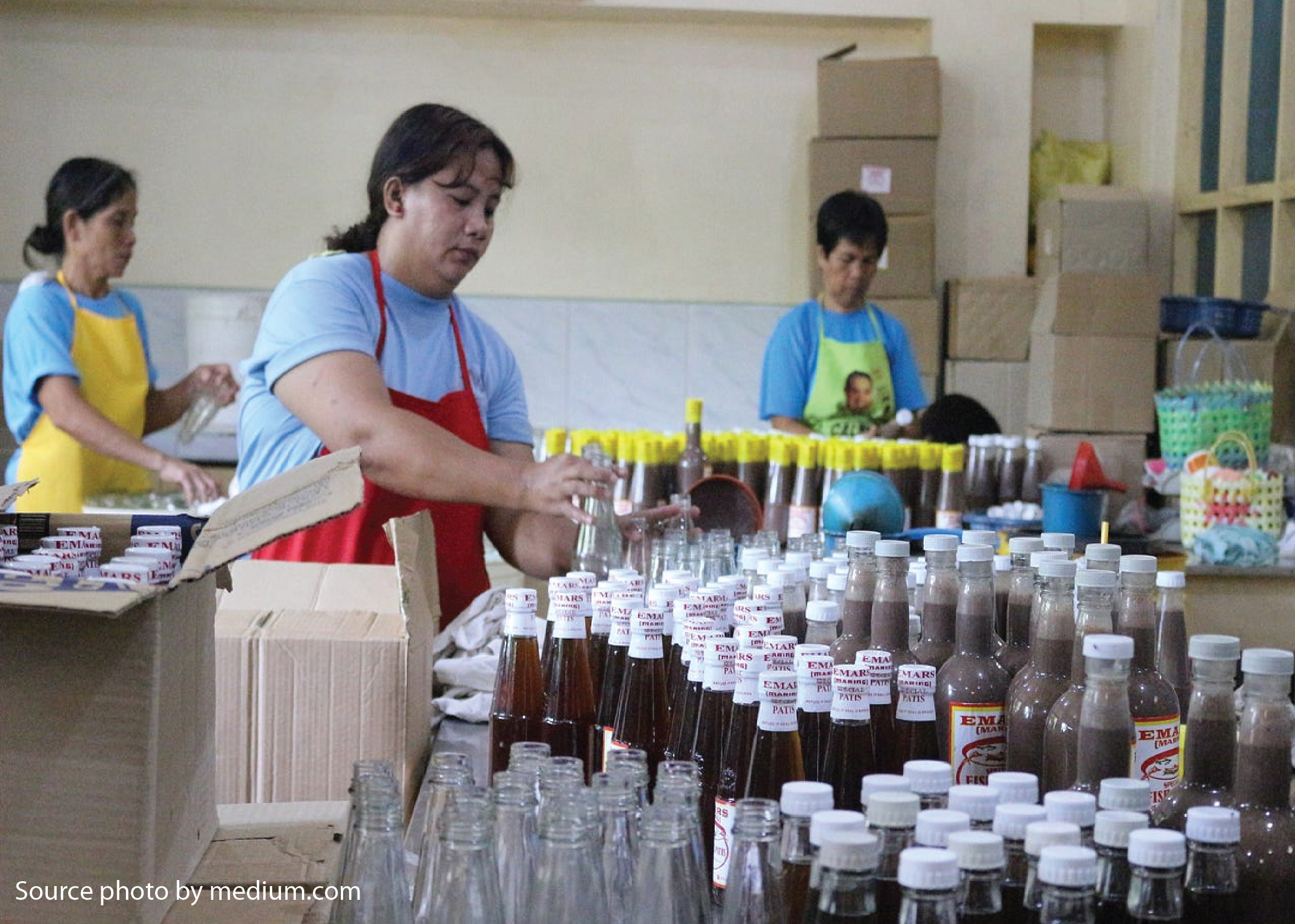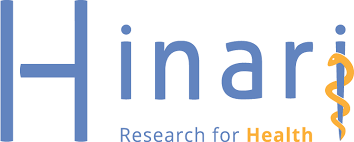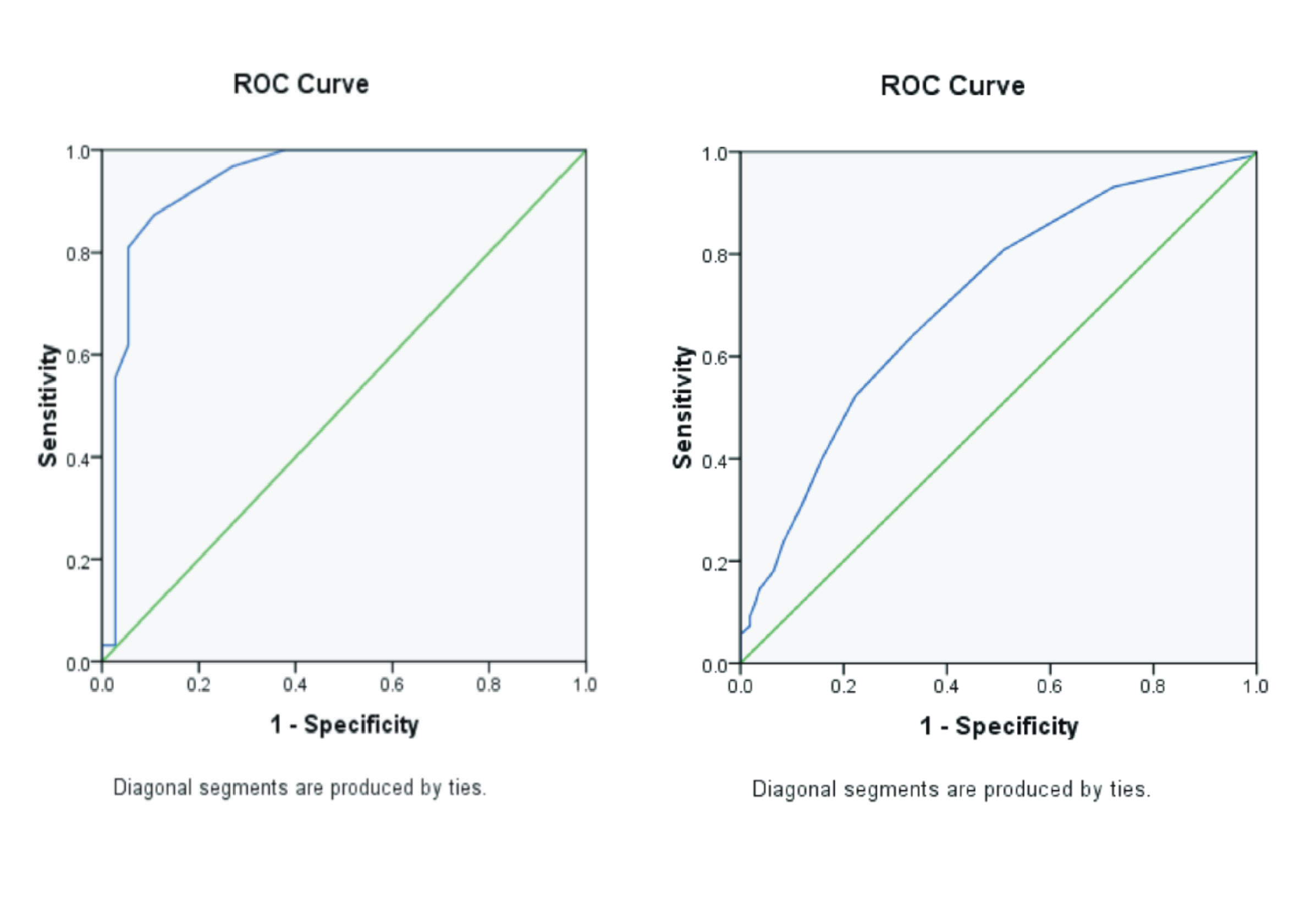THE INFLUENCE OF SELF-EFFICACY AND JOB STRESS TOWARD JOB BURNOUT AT A PACKAGING COMPANY IN SURABAYA

Downloads
Background: Job burnout is a phenomenon that often occurs in the workplace because of experiencing prolonged job stress. The higher the level of workers' self-efficacy, the lower the probability of job stress and the potential of job burnout experienced by workers. Purpose: To identify the influence of self-efficacy and job stress toward job burnout at a packaging company in Surabaya. Method: It was an analytical observational research with a cross-sectional approach. The respondents of this research were 99 workers in the production site of the packaging company in Surabaya. Questionnaire was used to collect individual data including age, gender, work period, education, and marital status which were related to the respondents' characteristics, while self-efficacy questionnaire was used to gather data about the workers' self-efficacy, HSE Management Standards Indicator Tool for job stress questionnaire, and Maslach Burnout Inventory (MBI) for job burnout questionnaire. Further, simple random sampling was used to draw the sample. The data were descriptively analyzed using related linear regression test. Result: Self-efficacy was proved to significantly influence job burnout in the aspects of reduced personal accomplishment (p-value=0.000), but self-efficacy did not influence job burnout in the aspects of emotional exhaustion and depersonalization. Whereas job stress was proved to significantly influence job burnout in the aspect of emotional exhaustion, depersonalization or reduced personal accomplishment (p-value=0.000). Conclusion: In sum, all aspects in job burnout were influenced by job stress.
Adriaenssens, J., Gucht, V. De, Maes, S., 2015. Determinants and Prevalence of Burnout in Emergency Nurses: A Systematic Review of 25 Years of Research. Int. J. Nurs. Stud. Vol. 52(2), Pp. 649-661.
Ahmed, F., 2019. Burnout among Traffic Police Officials of Islamabad City: A Report. Electron. Res. J. Soc. Sci. Humanit. Vol. 1(3), Pp. 1-15.
Alessandri, G., Perinelli, E., Longis, E. De, Schaufeli, W.B., Theodorou, A., Borgogni, L., Caprara, G.V.,Cinque, L., 2018. Job burnout: The Contribution ofEmotional Stability and Emotional Self-EffificacyBeliefs. J. Occup. Organ. Psychol. Vol. 91(4), Pp.823-851.
Alidosti, M., Delaram, M., Dehgani, L., Moghadam, M.M., 2016. Relationship Between Self-Efficacy and Burnout Among Nurses in Behbahan City, Iran. Women's Heal. Bull. Press (In Press. Vol. 3(4), Pp. 1-5.
Antonella, D., Geraci, A., Tarantino, C., 2020. The Relationship between Perceived Emotional Intelligence, Work Engagement, Job Satisfaction, and Burnout in Italian School Teachers: An Exploratory Study. Psihol. Teme Vol. 29(1), Pp. 63-84.
Bandura, A., 1997. Self-efficacy - The Exercise of Control. Worth Publishers, New York.
Bhagat, V., Haque, M., Bakar, Y.I.B.A., Husain, R., Khairi, C.M., 2016. Emotional Maturity of Medical StudentsImpacting Their Adult Learning Skills in A NewlyEstablished Public Medical School at The East Coast of Malaysian Peninsula. Adv. Med. Educ. Pract. Vol. 7(1), Pp. 575-584.
Clercq, D. De, Haq, I.U., Azeem, M.U., 2019. The Relationship between Workplace Incivility and Depersonalization Towards Co-workers: Roles of Job-related Anxiety, Gender, and Education. J. Manag. Organ. Vol. 26(2), Pp. 219-240.
Dugani, S., Afari, H., Hirschhorn, L.R., Ratcliffe, H., Veillard, J., Martin, G., Lagomarsino, G., Basu, L., Bitton, A., 2018. Prevalence and Factors Associated with Burnout among Frontline Primary Health Care Providers in Low- and Middle-income Countries: A Systematic Review. Gates Open Res. Vol. 2(4), Pp 1-27.
Evans, L., Young, G., 2017. Work-life Balance and Welfare. Aust. Psychiatry Vol. 25(2), Pp. 168-171.
Farradinna, S., Halim, F.W., 2016. The Consequences of Work-family Conflict, Burnout and Organizational Commitment among Women in Indonesia. Procedia-Social Behav. Sci. Vol. 219(1), Pp. 241-247.
Gunawan, H., 2018. Pengaruh Stres Kerja terhadap Kinerja Karyawan (Kasus pada PT. Semen Bosowa Maros). Bongaya J. Res. Manag. Vol. 1(2), Pp. 56-61.
Heugten, K. van, 2019. Resilience as An Underexplored Outcome of Workplace Bullying. SAGE Journals Vol. 35(3), Pp. 177-182.
Hobfoll, S.E., Freedy, J., 2017. Professional Burnout Recent Developments in Theory and Research. In: Chapter 7 Conservation of Resources: A General Stress Theory Applied to Burnout. Taylor and Francis, Pp. 15.
Hu, S., Wang, J.-N., Liu, L., Wu, H., Yang, X., Wang, Y., Wang, L., 2015. The Association between Work-related Characteristic and Job Burnout among Chinese Correctional Officers: A Cross-sectional Survey. Public Health Vol. 129(9), Pp. 1172-1178.
Ibrahim, H., Amansyah, M., Yahya, G.N., 2016. Faktor-Faktor yang Berhubungan dengan Stres Kerja pada Pekerja Factory 2 PT. Maruki Internasional Indonesia Makassar Tahun 2016. Al-Sihah Public Heal. Sci. J. Vol. 8(1), Pp. 60-68.
Kumar, S., 2016. Burnout and Doctors: Prevalence, Prevention and Intervention. Healthc. Vol. 4(3), Pp. 37-45.
Lan, Y.-L., Huang, W.-T., Kao, C.-L., Wang, H.-J., 2019. The Relationship between Organizational Climate, Job Stress, Workplace Burnout, and Retention of Pharmacists. J. Occup. Health Vol. 62(1), Pp. 1-9.
Lestariningsih, M., 2017. Self Efficacy and Achievement Motivation on Performance with Perceived Organizational Support Moderation (A Study on Private University Lecturer with "A” Accreditation Kopertis Region VII East Java). In: International Conference on Organizational Innovation (ICOI 2017). Atlantis Press, Pp. 81-85.
Li, P., 2020. An Analysis of The Causes of Job Burnout among Flight Attendants. Adv. Soc. Sci. Educ. Humanit. Res. Vol. 435(6), Pp 289-292.
Maslach, C., Leiter, M.P., 2016. Stress: Concepts, Cognition, Emotion, and Behavior, 1st ed. Elsevier Inc, Australia.
Misis, M., Kim, B., Cheeseman, K., Hogan, N.L., Lambert, E.G., 2013. The Impact of Correctional Officer Perceptions of Inmates on Job Stress. SAGE Journals Vol. 3(2), Pp. 1-13.
Munandar, A.S., 2011. Psikologi Industri dan Organisasi. Universitas Indonesia UI Press, Jakarta.
Munandar, A.S., 2014. Psikologi Industri dan Organisasi. Gadjah Mada University Press, Yogyakarta.
Nie, Z., Jin, Y., He, L., Chen, Y., Ren, X., Yu, J., Yao, Y., 2015. The Relationship between Job Burnout and Social Support in Hospital Nurses. Int. J. Clin. Exp Med Vol. 8(10), Pp. 19144–19149.
Nurrohmah, W.L., Sunuharyo, B.S., 2018. Pengaruh Konflik Kerja dan Stres Kerja terhadap Prestasi Kerja Karyawan (Studi pada Karyawan di PDAM kota Malang). J. Adm. Bisnis Vol. 55(1), Pp 11-17.
Oktaria, R., Pranaji, D.K., Muflikhati, I., 2015. Sumber Stres, Strategi Koping, dan Tingkat Stres Pada Buruh Perempuan Berstatus Menikah dan Lajang. J. Ilmu Kel. dan Konsum. Vol. 8(3), Pp. 133-141.
Pandey, J.K., Kar, K.K., 2015. Handbook of Polymer Nanocomposites, Processing, Performance and Application, 4 th. ed. Springer, London.
Prestiana, N.D.I., Purbandini, D., 2012. Hubungan antara Efikasi Diri (Self efficacy) dan Stres Kerja dengan Kejenuhan Kerja (Burnout) pada Perawat IGD dan ICU RSUD Kota Bekasi. SOUL J. Pemikir. dan Penelit. Psikol. Vol. 5(2), Pp. 1-14.
Rahayu, S., 2021. Hubungan Stabilitas Emosi dan Efikasi Diri terhadap Kualitas Hidup Tenaga Kesehatan di Masa Pandemik Covid-19. Universitas 17 Agustus 1945 Surabaya.
Ramdan, I.. M., Fadly, O.N., 2016. Analisis Faktor yang Berhubungan dengan Burnout pada Perawat Kesehatan Jiwa. J. Keperawatan Padjadjaran Vol. 4(2), Pp. 170-178.
Rana, A., Soodan, V., 2019. Effect of Occupational and Personal Stress on Job Satisfaction, Burnout, and Health: A Cross-sectional Analysis of College Teachers in Punjab, India. Indian J. Occup. Environ. Med. Vol. 23(3), Pp. 133-140.
Robbins, S.P., Judge, T.A., Angelica, D., 2012. Perilaku Organisasi, 2 nd. ed. Jakarta Salemba Empat.
Salvagion, D.A.J., Melanda, F.N., Mesas, A.E., Gonzalez, A.D., Gabani, Lopes, F., Andrade, De, S.M., 2017. Physical, Psychological and Occupational Consequences of Job Burnout: A Systematic Review of Prospective Studies. PLoS One Vol. 12(10), Pp. 1-29.
Sapti, A., 2018. Perkembangan Usia Memberikan Gambaran Kekuatan Otot Punggung pada Orang Dewasa Usia 40-60 Tahun. GASTER Vol. 16(1), Pp. 1-5.
Sari, R.P., Handayani, A., 2017. Hubungan Efikasi Diri dan Stres Kerja pada Guru Sekolah Luar Biasan Negeri Semarang. J. Psikol. PROYEKSI Vol. 12(2), Pp. 53-58.
Suerni, T., 2012. Analisa Faktor-Faktor yang Berhubungan Dengan Tingkat Stres Perawat IIC di RSU di Jawa Tengah. Universitas Indonesia.
Veldmana, I., Tartwijk, J. van, Brekelmans, M., Wubbels, T., 2013. Job Satisfaction and Teacher–student Relationships Across The Teaching Career: Four Case Studies. Teach. Teach. Educ. Vol. 32, Pp. 55-65.
Wang, Z., Liu, H., Yu, H., Wu, Y., Chang, S., Wang, L., 2017. Associations between Occupational Stress, Burnout and Well-being among Manufacturing Workers: Mediating Roles of Psychological Capital and Self-esteem. BMC Psychiatry Vol. 17(1), Pp 364-373.
Widyastuti, A.D., 2017. Hubungan Stres Kerja dengan Kelelahan Kerja pada Area Workshop Konstruksi Box Truck. Indones. J. Occup. Saf. Heal. Vol. 6(2), Pp. 216-224.
Wong, J., Tome, C.M., Wong, A.M., 2019. Demographic Group Differences in Stress Coping Mechanism: The Case of Public-school Administrators in The Division of Romblon. Int. J. Innov. Res. Educ. Sci. Vol. 6(2), Pp 2349–5219.
Yu, X., Wang, P., Zhai, X., Dai, H., 2014. The Effect of Work Stress on Job Burnout among Teachers: The Mediating Role of Self-efficacy. Soc. Indic. Res. Vol. 122(3), Pp. 701–708
Copyright (c) 2022 Journal of Vocational Health Studies

This work is licensed under a Creative Commons Attribution-NonCommercial-ShareAlike 4.0 International License.
- The authors agree to transfer the transfer copyright of the article to the Journal of Vocational Health Studies (JVHS) effective if and when the paper is accepted for publication.
- Legal formal aspect of journal publication accessibility refers to Creative Commons Attribution-NonCommercial-ShareAlike (CC BY-NC-SA), implies that publication can be used for non-commercial purposes in its original form.
- Every publications (printed/electronic) are open access for educational purposes, research, and library. Other that the aims mentioned above, editorial board is not responsible for copyright violation.
Journal of Vocational Health Studies is licensed under a Creative Commons Attribution-NonCommercial-ShareAlike 4.0 International License














































